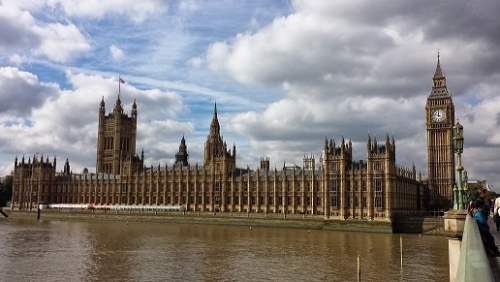Unexplained wealth orders in the offing for UK
Chris Hamblin, Editor, London, 2 September 2015

The Proceeds of Crime Act 2002 already allows the authorities to seize people's property without anyone being convicted of a crime, but HM Government is now planning to extend this power further.
It is thought to be modelling its approach on existing laws to be found in Ireland and some states of Australia, which provide for the seizure of property over which the holders cannot prove clear title to the satisfaction of the authorities. Australian Civil Liberties Tasmanian director Richard Griggs has told the press: “The laws fall on the Mr Littles of crime disproportionately and excessively, rather than the Mr Bigs.”
This is true of 'proceeds of crime' legislation generally. When POCA was being piloted through the British Parliament, the Government promised that it would impound the wealth of the 50 or so 'Mr Bigs' who ran criminal 'firms' in the UK. In this regard the law was a resounding failure, failing in its first 5 years to net large amounts from any 'Mr Big' except Terry Adams, the leader of the Clerkenwell crime syndicate (also known as the Adams family) whose wealth was estimated at £200 million but who was, in 2007 after his arrest and conviction for money-laundering, ordered to pay £5.6 million in legal fees and costs and, in 2014, finally ordered to pay £650,000 under the provisions of POCA. Adams' conviction was unusual as it was largely the result of an unprecedented 'combined op' involving MI5, the Inland Revenue and other agencies. Have-a-go fraudsters who are many rungs below the 'Mr Bigs' are, however, yielding up impressive multiples of millions because they are being targeted in large numbers. As with the Financial Services and Markets Act in the financial world, a massive increase in state control appears to be creating higher barriers to entry for business in the world of organised crime without particularly fazing those at the very top.
Sir Eric Pickles, the UK's anti-corruption czar, is thought to be championing the idea and to be inclining favourably towards Transparency International's proposal for an 'unexplained wealth order' on the statute book as a tool of confiscation to rest in the hands of judges. It wants suspects issued with such an order to explain legitimate and legal sources of wealth for assets or transactions that someone in power claims to be suspicious, as long as there is "enough initial suspicion of criminality." It believes that if the trigger for the order is a suspicious activity report, the 31-day time-frame for refused consent should be extended indefinitely. Failure to respond to an order, or an inadequate response, together with the initial grounds for suspicion, could then be used to facilitate a civil recovery process against the asset.
To give readers an idea of the total size of confiscations, in 2013 the BBC reported obtained Home Office figures that showed that £46m had been recovered in Wales out of £77m from a blizzard of orders issued in the 10 years since POCA came into force. £165m in assets were seized under POCA in 2012 in the whole of the UK.
After payment of the compensation to the victims, half of the money from a successful confiscation in the UK goes to the central government exchequer, the remaining half being shared between the courts, the prosecuting authority and the investigating agencies.
In the case of R (Assets Recovery Agency & Others) v Green & Others (TLR, 27th Feb 2006) the judge ruled that although there is no requirement to allege any specific criminal offence, and although hearsay evidence is fine for establishing 'proof' that wealth is probably of criminal origin, a claim for civil recovery cannot be sustained purely on the basis of there being no identifiable lawful income. This might be about to change.












